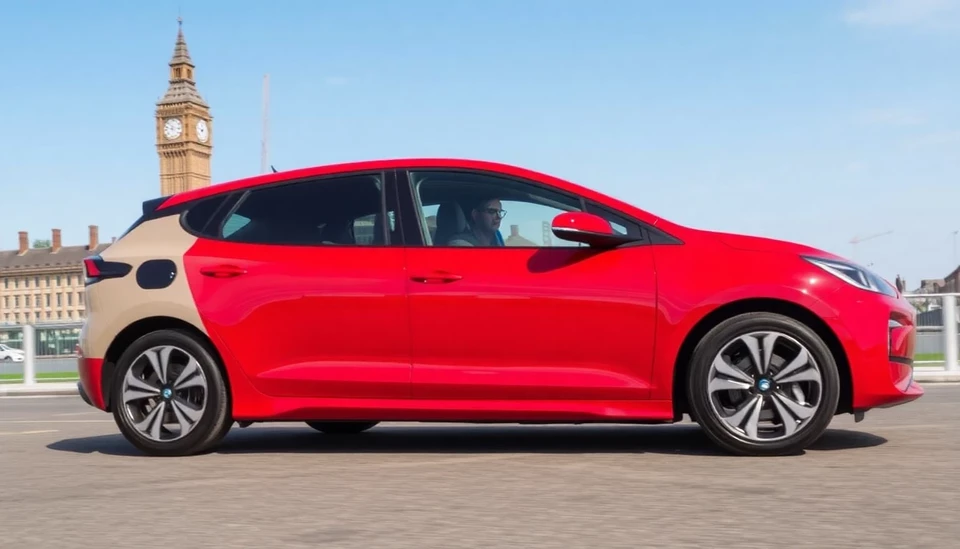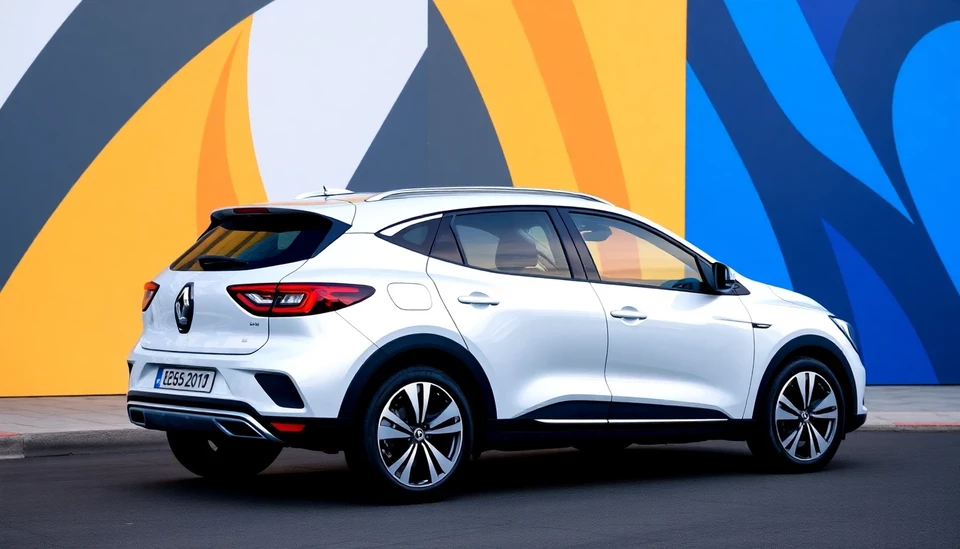
In an unprecedented turn of events, electric vehicle (EV) sales in the United Kingdom have surged dramatically as car manufacturers reduce prices in a bid to avoid severe penalties linked to carbon emissions targets. This trend marks a significant shift in the automotive landscape, as consumers are increasingly swayed by enticing discounts in the face of regulatory pressures.
The latest data reveals that electric vehicle registrations soared by an impressive 41% in December alone compared to the same period last year. The total number of new EVs registered in 2024 reached nearly 200,000, a clear indication of shifting consumer priorities and rising demand for sustainable transport options. Analysts suggest that this surge is also fueled by the broader push for electrification within the country, alongside environmental concerns among consumers.
Several car manufacturers have played a pivotal role in this sudden boom. Major players in the automotive industry, including Tesla, Ford, and Volkswagen, have slashed prices of their electric models significantly. These discounts are primarily aimed at enticing buyers while simultaneously helping manufacturers avoid hefty fines imposed by the UK government for exceeding emissions targets set under stringent environmental regulations.
UK regulators have established ambitious goals aimed at reducing carbon emissions from vehicles, and carmakers are under intense pressure to comply. With only a couple of years to meet tough emission quotas, automakers perceive price reductions as a strategic maneuver to keep their average fleet emissions within allowable limits. Failure to comply could result in fines that could amount to millions of pounds, significantly impacting the financial health of these companies.
In addition to the immediate financial incentives for consumers, many buyers are also looking at the long-term benefits of electric vehicles. The lower running costs, along with various government incentives available for EV purchases, make them an attractive option despite the initial investment. With charging infrastructure rapidly expanding across the UK and innovations in battery technology enhancing range, consumers are increasingly comfortable making the switch to electric.
Furthermore, expert forecasts indicate that this upward trajectory in EV sales is likely to continue, with many consumers cutting back on petrol and diesel vehicles as awareness of climate change issues and air quality improves. Experts predict that as technology evolves and the electric vehicle market matures, prices will stabilize, offering consumers even more choices in the coming years.
As this price-cut phenomenon unfolds, stakeholders within the automotive sector are closely monitoring market responses and consumer behavior in real-time. Automakers are expected to recalibrate their strategies continuously to optimize offers and maximize sales opportunities while navigating the regulatory landscape effectively.
With the UK committed to reaching net-zero emissions by 2050, it is clear that the transition to electric vehicles is set to accelerate substantially in the coming years. The recent sales spurt serves as a sign of what can be achieved when manufacturers and consumers come together in a shared commitment to a more sustainable future.
As electric vehicle sales soar and manufacturers continue to adjust their pricing strategies in response to evolving regulations, one thing remains certain: the UK’s automotive industry is witnessing a transformative moment that could reshape the future of transport.
#ElectricVehicles #EVSales #UKAutomotive #SustainableTransport #CarManufacturers #ClimateAction
Author: Victoria Adams




